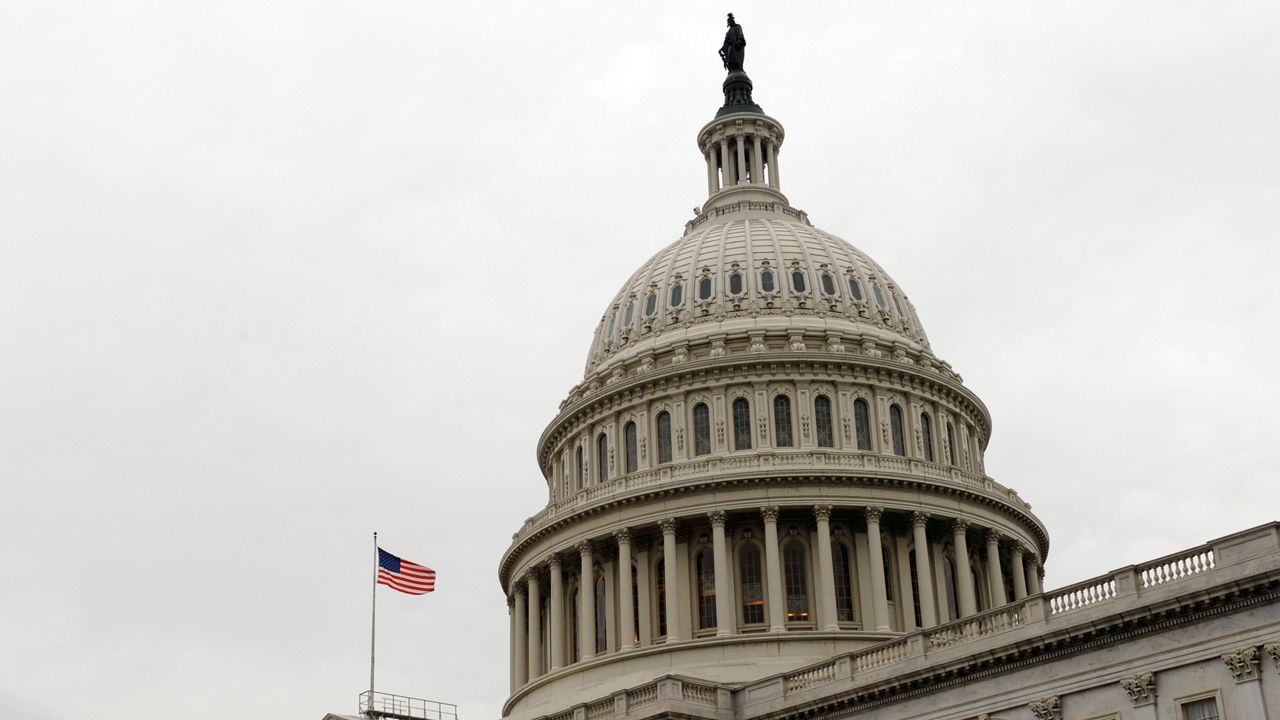The Senate Judiciary Committee on Wednesday held a hearing to examine the impact of gun violence on children in the United States, just weeks after the massacre at Robb Elementary School in Uvalde, Texas, last month.
Data from the Centers for Disease and Prevention shows that firearms became the leading cause of death for children for the first time in 2020.
In his opening statement, Chairman Dick Durbin, D-Il., stressed the importance of passing gun reform laws as soon as possible in order to prevent the next mass shooting. “We need to treat this like a public health crisis,” said Durbin.
Over the weekend, a group of Senators announced a bipartisan framework agreement on new gun legislation. The proposal includes a collection of measures to combat gun violence, such as stricter ‘red flag’ laws, an increase in mental health funding and enhanced background checks.
In addition, the bill would make the juvenile records of gun buyers under the age of 21 available when they undergo background checks.
As Congress is closer than it has been in years to passing gun safety legislation, a new survey conducted by Morning Consult/Politico shows that a majority of the American public – around 68% of voters – also back tougher gun laws.
Before the hearing began on Wednesday, more than 300 pediatricians submitted personal testimonies illustrating the impact of gun violence on their patients, their communities and their lives.
“The number of pediatricians who have taken the time to tell their stories is a true testament to the profound impact of gun violence on children and the extent to which it has transformed our profession,” said Moira Szilagyi, MD, president of the American Academy of Pediatrics.
In the hearing, five witnesses – ranging from victims of gun violence, members of law enforcement, a pediatric doctor and a legal fellow from the Heritage Foundation – testified in front of lawmakers.
Nineteen-year-old College student Ernest Willingham spoke of growing up on the west side of Chicago, where he said he lived in constant fear that he would be “shot and killed.”
“I have seen my brother, my father, my cousin and my best friend become victims of gun violence,” said Willingham. “I didn't have a clear understanding of gun violence, but it did not take a rocket scientist to recognize the emotional trauma.”
Willingham spoke directly to the Senate, pleading with lawmakers to pass gun reform laws. “Until the legislative branch takes a stand to save our children, we are pointing the finger right back at you,” he said. “In the past week, there have been at least 377 deaths and 804 injured from gun violence. Senators, consider yourself responsible.”
The issue of mental health took center stage during the hearing, with Republican Sen. Chuck Grassley, R-Ia., the panel’s ranking member, using his opening statement to highlight the issue of mental health.
“Mental health issues are a root cause of many tragedies that we see across the country,” said Sen. Grassley. “Any legislation proposed in the Senate that is looking to impact change must include resources to address mental health.”
Grassley is currently spearheading the EAGLES Act, a bipartisan proposal that seeks to expand the Secret Service’s National Threat Assessment Center (NTAC) with an emphasis on countering school violence.
National School safety advocate and father of one of the victims of the Parkland School shooting, Max Schachter, also testified on Wednesday. Schachter, who supports the EAGLES Act, expressed his frustration at the lack of action from lawmakers.
“After 9/11, we made the airplane safer,” said Schachter. “After the Oklahoma City bombing, we made the federal buildings safer. I do not understand how more than 20 years after Columbine, children and teachers continue to be murdered in their classrooms.”
Though all of the lawmakers agreed on the importance of passing safety legislation to protect children from gun violence, the ways in which to best prevent gun violence were up for debate.
Democratic Senators, such as Sen. Booker, D-N.J., stressed that easy access to guns is a large factor that contributes to gun violence in this country.
“When Wyoming got rid of their gun licensing, shootings went up 20%, suicides rose,” said Sen. Booker. “When Connecticut put gun licensing in, the data shows 40% drop in shootings.”
In contrast, Republican Sen. Ted Cruz, R-Texas, used his time to draw attention to the issue of school safety, suggesting that schools ought to have armed officers on-site, as well as only have one unlocked door.
“If there had been a single entrance with armed police officers, those police officers could have stopped him,” said Sen. Cruz, speaking of the tragedy in Uvalde in his home state of Texas.
But security experts and other officials have criticized the single-door argument, making the case that it’s not “feasible.”
“It is not feasible to think we’re going to ever get to the point where we have one door in and one door out,” Bill Avera, chief of police for the Jacksonville Independent School District in Texas, told the Texas Tribune in May. “Let’s say you had a high school that had 3,000 students, and you’re going to use one entry point to bring those students into that building every day. That’s going to literally double the amount of time it takes to get folks in that building.”
“The ‘one door’ theory of schools is not how we think about education or design, but it’s also not how we think about security,” Juliette Kayyem, a former Obama Homeland Security official, wrote on Twitter last month. “It actually is bad safety planning. A ‘psychopath’ would then just target the kids backed up in line and waiting for this ‘one door’ to let them through.”
Both Republican and Democratic lawmakers agreed on the importance of increasing mental health resources.



